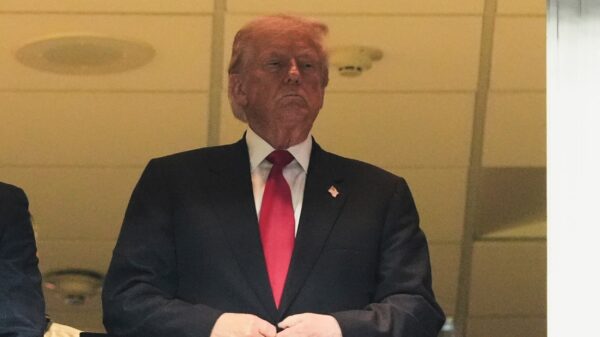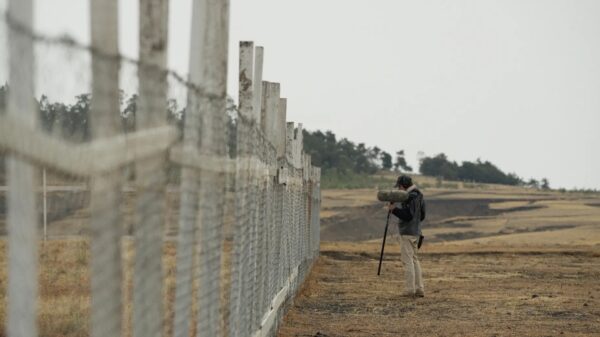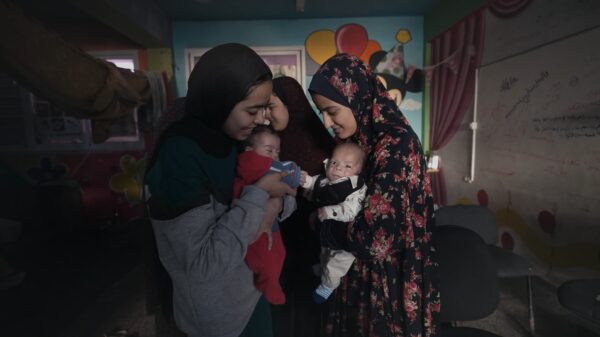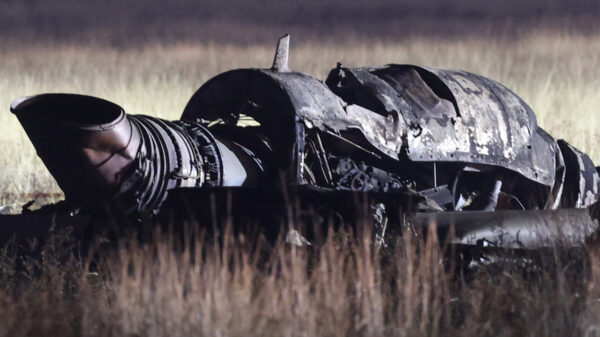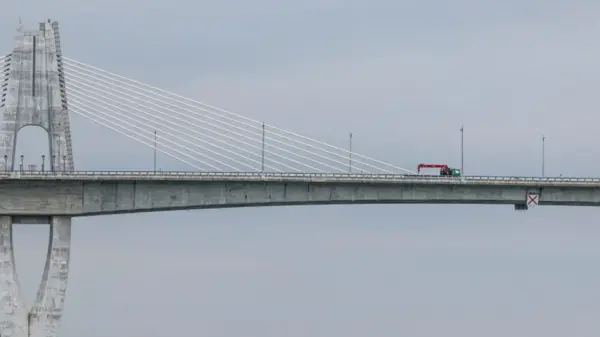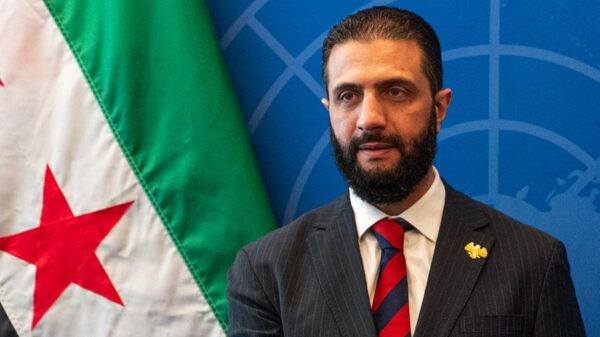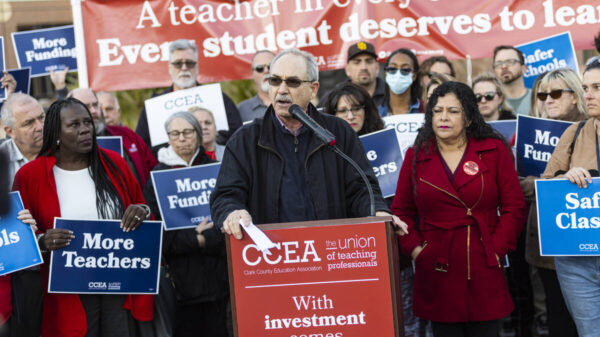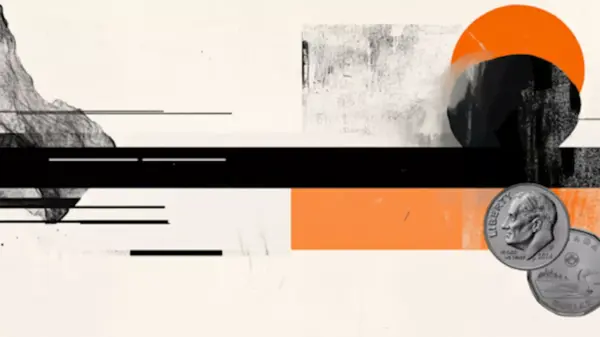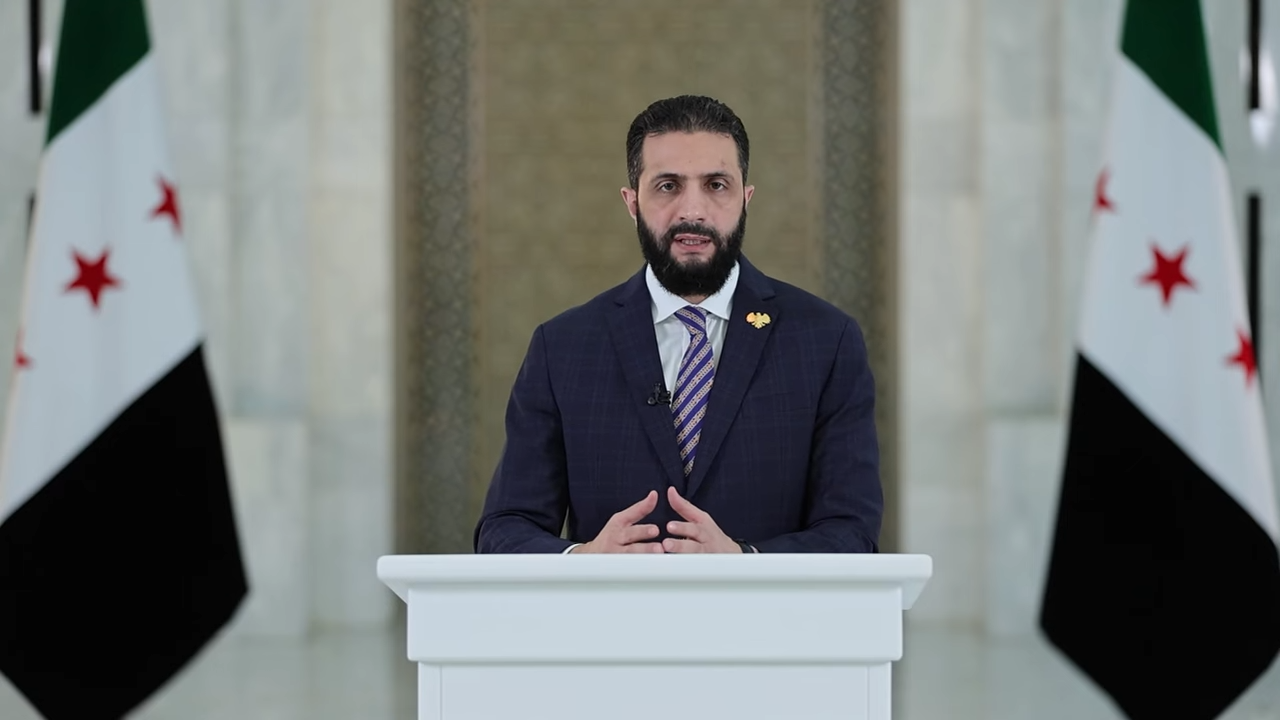UPDATE: Syrian Interim President Ahmad al-Sharaa is facing a critical crisis as Israel escalates military operations in response to rising sectarian violence. Just seven months into his leadership, Sharaa, who ousted longtime President Bashar al-Assad, is now on Israel’s radar following accusations of violence against the Druze minority in southern Syria.
Israeli forces have launched a series of strikes against Syrian military targets, including significant sites in Damascus, reflecting the most intense operations since the fall of Assad. Reports indicate that Israeli airstrikes targeted the Syrian Defense Ministry on July 16, amid a backdrop of escalating violence in Al-Sweida, where Bedouin tribes, allegedly backed by Syrian security forces, have attacked the Druze community, leading to hundreds of casualties, including women and children.
The urgency of the situation has drawn international attention, with Israeli officials asserting that they have a responsibility to protect minority rights in the region. Israeli Prime Minister Benjamin Netanyahu stated that his government will act decisively against perceived threats to national security, citing Sharaa’s administration as a potential risk.
In a statement, former Israeli ambassador Reda Mansour emphasized,
“If Israel feels that a certain leader is an evident threat to its national security, it will operate.”
This sentiment has resonated amid fears that Sharaa could follow other regional leaders targeted by Israeli strikes.
Sharaa’s government has argued that their actions are aimed at restoring order in regions dominated by Druze militias, yet allegations of violence have undermined his claims of protecting minority communities. The Druze are a significant religious minority in Syria, and their plight has prompted calls from within Israel for military action to safeguard them.
The situation has escalated further as reports emerged that Sharaa met with Donald Trump at the Saudi Royal Palace in May, marking a shift in U.S.-Syrian relations. Trump praised Sharaa, stating, “He’s got a real shot at holding it together,” following the revocation of terrorist designations against Sharaa’s former faction. However, subsequent Israeli strikes have raised questions about the stability of Sharaa’s government and the potential for renewed conflict.
Israeli officials have justified their military interventions by citing the need to prevent hostile forces from establishing a foothold near their borders. The ongoing operations are seen as part of a broader strategy to maintain control over southern Syria, especially in light of the recent regional conflicts ignited by the Palestinian Hamas attacks on Israel.
As violence continues to erupt, Syrian politicians close to Sharaa warn that the Israeli incursions threaten the stability of the newly formed government. Mahmoud Toron, a Syrian politician, remarked, “The last events have proven that Israel has become completely unpredictable,” underscoring the precarious position of Syria amid external pressures.
The international community is closely monitoring the situation, as both the U.S. and regional players seek a resolution to the growing tensions. With Sharaa publicly declaring the protection of the Druze a priority, the potential for further violence looms large. As Israeli troops mobilize and airstrikes escalate, the fate of Sharaa’s administration and the safety of minority groups in Syria hang in the balance.
This developing crisis highlights the urgent need for diplomatic engagement and a reevaluation of strategies to ensure stability in the region. As the situation unfolds, the implications for Syria and its neighbors are profound, with calls for action echoing across borders.


